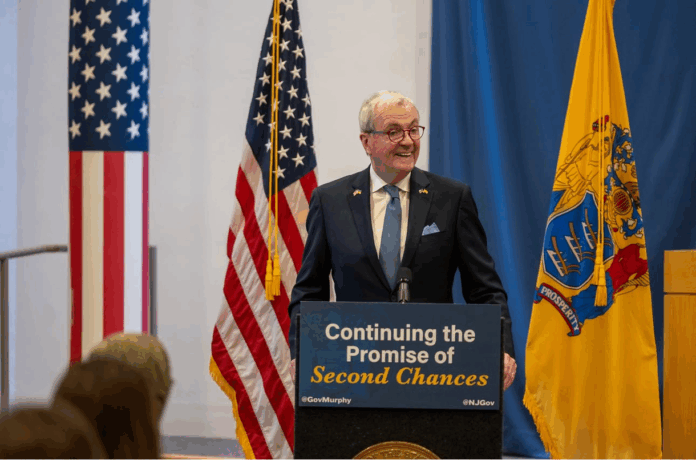New Jersey entered the final weeks of 2025 with one of the most sweeping sets of clemency decisions in recent state memory, as Governor Phil Murphy continued a broad effort to reconsider long-term sentences and reopen pathways to rehabilitation. Across two separate actions in November, the Governor granted clemency to more than a dozen individuals convicted of murder or aggravated manslaughter, part of a larger statewide push to reexamine cases where applicants demonstrated substantial growth, accountability, and readiness to reenter society.
The most recent announcement arrived on November 25, when the Governor issued his sixth round of pardons and commutations. This single action encompassed 55 people, nearly a third of whom had been serving time for taking another person’s life. Just two weeks earlier, the administration released an additional list of 11 individuals whose sentences for murder or aggravated manslaughter were commuted. Combined with earlier rounds, the Governor has now granted clemency to 283 people since establishing his Clemency Advisory Board in June 2024, with roughly three dozen individuals convicted of murder or manslaughter released since late 2024.
These decisions have stirred a vigorous debate in the state, reflecting broader national conversations about criminal justice reform. Supporters of Murphy’s approach emphasize that each case undergoes rigorous review and that recipients must demonstrate accountability, personal change, and a clear plan to reintegrate into the community. The Governor’s office has repeatedly framed the initiative as a chance to reunite families, undo excessive sentencing practices, and recognize the potential for transformation among people who have spent decades working toward redemption.
Critics, however, particularly from within New Jersey’s Republican legislative bloc, argue that extending clemency to individuals convicted of violent crimes risks undermining public confidence in the justice system. They raise concerns about public safety and warn that releasing people convicted of murder or armed robbery could send the wrong signal at a time when communities are asking for greater transparency and stronger protections. As these discussions continue, New Jersey finds itself navigating the tension between second chances and accountability—an issue that sits at the center of the state’s evolving approach to law, order, and rehabilitation.
Behind the scenes, a notable force in this movement has been the Princeton University Clemency Project, an intensive service-learning program that gives students the opportunity to directly assist incarcerated individuals seeking executive clemency. Operating under the Princeton School of Public and International Affairs, the project brings together more than 50 student “Clemency Fellows” who work under the supervision of former New Jersey Public Defender Joe Krakora. Their goal: build strong, legally grounded petitions for applicants who meet the criteria laid out in the Governor’s clemency guidelines.
Students immerse themselves in case research, conduct interviews, draft legal memos, and prepare full petition submissions. The project partners closely with the ACLU of New Jersey and the state Office of the Public Defender, creating a collaborative pipeline that blends academic training with on-the-ground impact. During its first semester in spring 2025, the program filed 32 petitions—several of which have since resulted in clemency. Its second phase is currently underway, expanding both the number of applicants served and the educational experience for participating students.
For New Jersey residents following developments in criminal justice, legislative updates, or high-profile statewide decisions, our continuously updated coverage of law and order provides a broader look at how the state is shaping its future approach to public safety and legal reform.
As 2025 draws to a close, New Jersey stands at a crossroads where policy, compassion, and public safety intersect. Governor Murphy’s clemency actions represent one of the most ambitious efforts in recent state history to reassess punishment and possibility, while programs like Princeton’s demonstrate the growing role of academic institutions in shaping a more thoughtful and humane justice landscape.












